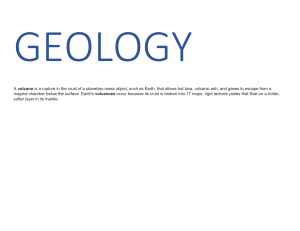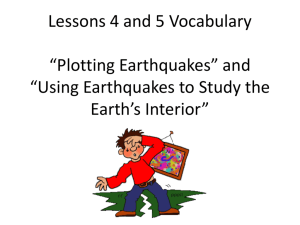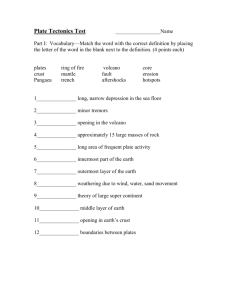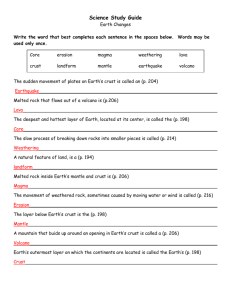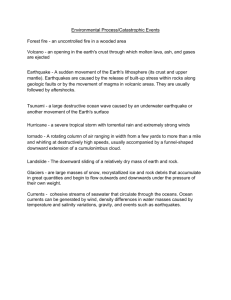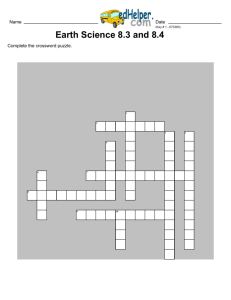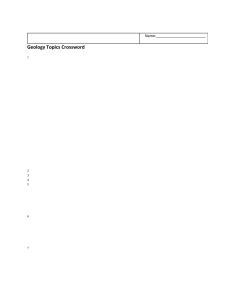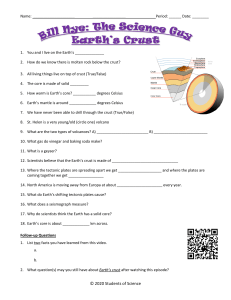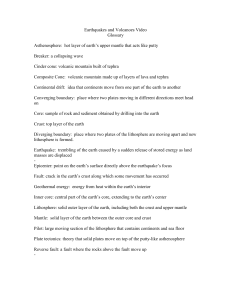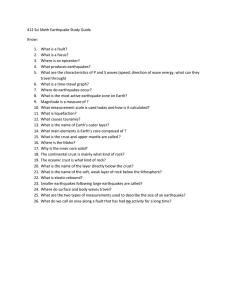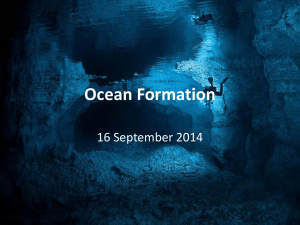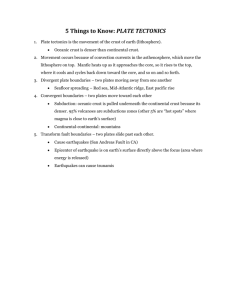Unit 2 Exam Review – W GEO There are 7 continents on Earth. List
advertisement
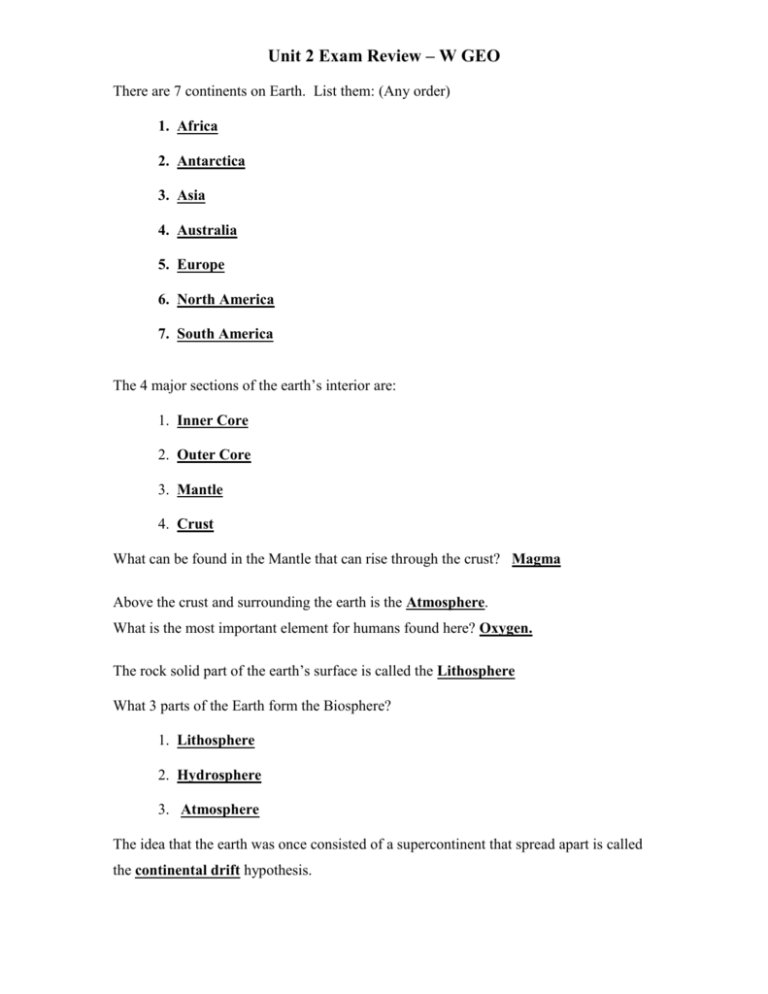
Unit 2 Exam Review – W GEO There are 7 continents on Earth. List them: (Any order) 1. Africa 2. Antarctica 3. Asia 4. Australia 5. Europe 6. North America 7. South America The 4 major sections of the earth’s interior are: 1. Inner Core 2. Outer Core 3. Mantle 4. Crust What can be found in the Mantle that can rise through the crust? Magma Above the crust and surrounding the earth is the Atmosphere. What is the most important element for humans found here? Oxygen. The rock solid part of the earth’s surface is called the Lithosphere What 3 parts of the Earth form the Biosphere? 1. Lithosphere 2. Hydrosphere 3. Atmosphere The idea that the earth was once consisted of a supercontinent that spread apart is called the continental drift hypothesis. Oceans cover about 71% of our planet. What are considered the 4 main oceans? Pacific Atlantic__India Artic. Hydrologic is another name for the water cycle. LANDFORMS: Define the following. Volcano: an opening in the earth, usually raised, which gases and lava escape. Island: a body of land surrounded by water Delta: a triangular area of land formed from deposits at the mouth of a river Peninsula: a point of land extending into an ocean or lake Prairie: a large, level area of grassland with low or no trees Mountain: natural elevation of the earth’s surface with steep sides and greater height than hill. Enormous pieces of the Earth’s crust that are moving are known as tectonic plates. Name 3 ways these move: 1: spreading or moving apart_(divergent) 2:crashing into one another_(convergent) 4: sliding past each other (transform) Rift valleys are formed by __divergent_____ plate movement. A fracture in the earth’s crust is called a Fault. Earthquakes occur when the plates grind or slip past each other causing violent movement in the earth. The place directly above where an earthquake begins is called the epicenter. The scale used to measure the strength of an earthquake is called the Richter Scale. Energy released from the movement of tectonic plates are called ___seismic waves_________________________. An earthquake begins at a point below the earth’s surface called the _____focus______________. Smaller earthquakes that occur in the same general area during the days to years following a larger event are called ___aftershocks__________________. Giant waves in the ocean caused by earthquakes are known as Tsunami. Cracks in the earth’s surface where magma, gases and water are released are called Volcano. Magma that reaches the earth’s surface is called Lava A zone around the rim of the Pacific Ocean where a vast majority of the world’s volcanoes are located is called the Ring of Fire. Weathering creates smaller and smaller pieces of rock called Sediment. Erosion occurs when weathered material is moved by the action of wind water, ice or gravity.
